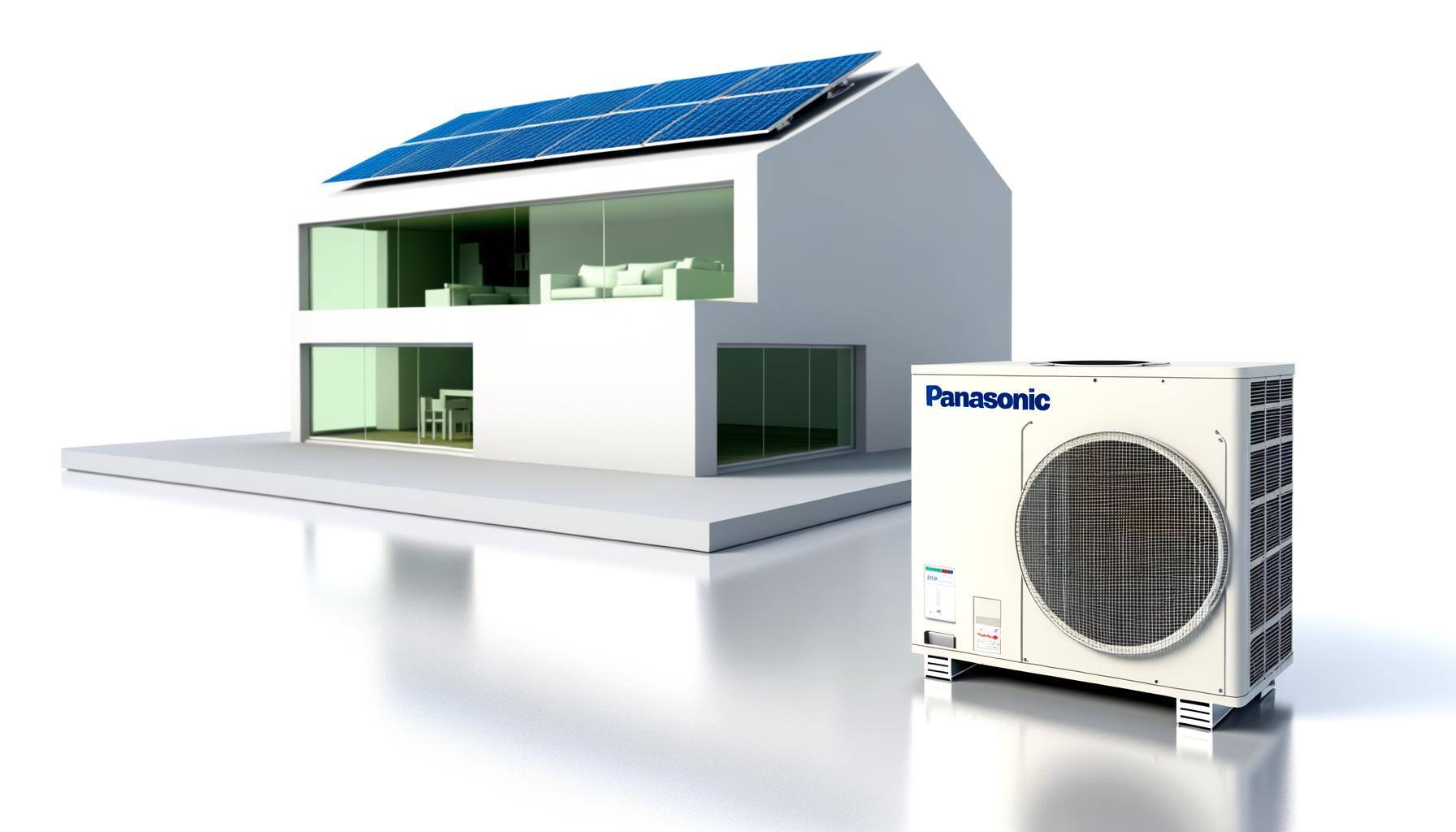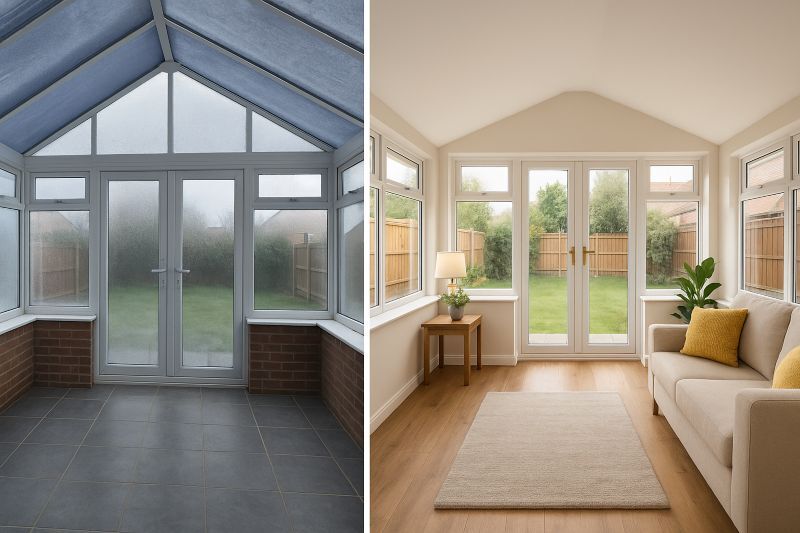Solar Panel & Heat Pump Finance For East Anglia - 0% APR Available
Introducing Our Newly Launched Finance Options: Making Renewables More Accessible One of the biggest barriers to installing renewable technologies...
5 min read
Jessica Whitehall
:
Aug 12, 2025 8:30:00 AM


With energy prices on the rise and sustainability high on the national agenda, more and more UK homeowners are turning to solar panels as a smart, future-ready investment.
But what does the data really say about their efficiency and value for money?
This in-depth guide breaks it all down, from realistic payback periods and Smart Export Guarantee (SEG) earnings, to battery storage options and how solar can boost your property’s value.
We’ll also explore how East Anglia’s unique sunlight levels impact performance and tools to help you calculate your potential solar panel ROI.
So read on if you want to have a clear picture of whether solar panels make sense for your home.
Solar panels are fast becoming a financial lifeline for households facing rising energy bills.
With new technologies to improve efficiency, and generous government support, what was once a niche option for sustainable electricity production is now a mainstream energy solution.
So, how much could solar panels actually save the average UK household?
According to the Energy Saving Trust, a standard 4.5kWp system could shave more than £300 off your annual electricity bill, depending on your usage habits and whether you’re at home during the day. Those savings increase for households with electric vehicles, home offices, or consistent daytime usage.
Did you know that East Anglia gets some of the best weather in the UK? With its generous sunlight exposure averaging over 1,500 hours annually, the financial gains from solar panels can be even more significant.
Over a 25-year lifespan, those savings could add up to over £7500, making solar panels one of the most impactful investments you can make to reduce long-term energy costs.
But that doesn’t even include the income you could generate from the Smart Export Guarantee!
Introduced in 2020, the Smart Export Guarantee is a government-backed initiative requiring large energy suppliers to pay homeowners for surplus electricity they export back to the grid.
Unlike the old Feed-in Tariff, SEG allows suppliers to set their own rates, which means it pays to shop around.
Here’s a quick look at some of the best Smart Export Guarantee rates currently available:
The average household exports around 50% of the electricity it generates - even more if you don’t opt for battery storage.
That exported electricity can provide a welcome additional income of around £300 annually, depending on your tariff and usage habits.
So an average annual saving of around £300, and an additional £300 per year from the SEG comes to around a £600 annual return from your solar panels (the Energy Savings Trust estimates between £510 and £690 on average).
Solar Panel ROI is a straightforward way to measure how financially worthwhile solar panels are over time.
It compares your upfront installation cost against the total savings and income your system generates.
Let’s break it down with a typical example:
Now let’s apply the ROI formula:
Using this example, you’d be likely to see a 130.5% return over the system’s lifetime.
In short, solar panels don’t just pay for themselves - they generate significant long-term value.
Unlike many other home upgrades, your solar panel ROI is relatively stable. It's not tied to volatile market conditions, but rather to your consistent use of free solar energy.
And as electricity prices climb, the solar panel ROI tends to increase, making it a future-proof investment. Teamed with an ASHP (air source heat pump) your ROI can be improved even further.
The payback period for solar panels is the time it takes for your solar panel system to “pay for itself” through accumulated savings and SEG payments.
Across the UK, the average payback period for a standard installation typically falls between 10 and 15 years.
A key driver of the payback period is the total cost of your installation. For instance, a typical system might cost £6,500.
With average combined savings of £600 per year, you could see a full return on your investment in around 10 or 11 years.
After that point, all the energy savings and SEG income become pure financial gain.
The exact timeframe will vary depending on your location, roof orientation, usage habits, and whether you choose to include a battery.
Systems in sunnier regions like East Anglia tend to pay back faster, especially when SEG rates are favourable.
It’s all well and good talking about national average ROI and payback period - but you’re probably wondering if these figures will ring true for your home.
The good news is - you can get more tailored estimates about installations cost, likely energy savings and SEG export income from solar panel payback period calculators like the Energy Saving Trust’s Solar Energy Calculator.
You will need a few details on hand, such as your postcode, the area of your roof, your annual energy consumption, and whether you have a pitched roof. It also asks you to have a recent electricity bill to hand.
But once you’ve entered your details into the system, it will be able to give you a personalised installation estimate and advise on your likely savings.
If getting all these details together seems like hard work - you can always get in touch with Projects4Renewables. We’d be happy to do the heavy lifting and get you a tailored quote.
Pairing your solar panels with a battery storage system allows you to store unused electricity and use it later, rather than exporting it or relying on the grid.
This significantly increases your energy independence and can raise your self-consumption from around 50% to over 85%.
In practical terms, this means:
While battery systems represent an additional investment, typically between £2,500 and £10,000 including installation - many pay for themselves within 7 to 12 years.
When combined with solar panels, they can enhance your overall solar panel ROI, reduce reliance on the grid, and offer greater long-term stability and peace of mind.
There’s growing evidence that solar panels don’t just save money - they can actually make you money when it’s time to sell your home.
Research from GreenMatch suggests that homes with solar panels can boost a property's value by 6.2%–6.8% on average.
That’s an increase of £18,000–£24,000 on a £300,000 home.
Buyers increasingly favour energy-efficient properties, and solar panels contribute significantly to your home’s EPC rating.
In a housing market that’s becoming more energy-conscious, solar panels can offer a strong selling point.
The UK government currently supports solar adoption with a 0% VAT rate on solar panel and battery storage installations until 2027.
This tax relief reduces your upfront costs by 20%, making it more affordable to invest in a full solar setup.
While the UK doesn’t offer direct tax credits like in other countries, some local councils provide grants, such as the Home Upgrade Grant, which may be available to some homeowners.
There’s no longer any doubt - solar panels are not only efficient, but financially compelling from an ROI perspective.
They’re a practical choice if you’re looking to cut bills, reduce carbon emissions, and future-proof your East Anglia property.
And for those thinking ahead, solar panels are proven to increase property value and widen appeal to energy-conscious buyers.
If you're considering your own installation, start by using a solar panel payback period calculator to get personalised insights.
Then compare SEG rates, consider battery options, and speak to an MCS certified installer like Projects4Renewables.
A smarter, greener home might be closer than you think.

Introducing Our Newly Launched Finance Options: Making Renewables More Accessible One of the biggest barriers to installing renewable technologies...

Does your conservatory feel like wasted space? In summer, it may be uncomfortably hot, and in winter, too chilly to enjoy.

The shift towards low-carbon heating is gaining momentum across the UK, and East Anglia is no exception. With the UK government targeting net-zero...